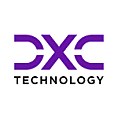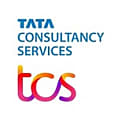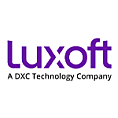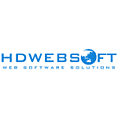Following security and compliance guidelines is critical for top cloud consulting firms. These regulations serve as more than just suggestions; they are fundamental foundations that guarantee data protection, respect privacy rights, and preserve customer and consulting firm confidence. Here's a thorough examination of the main security and compliance guidelines that cloud consulting companies usually adhere to:
1. Data Protection and Privacy Laws
Cloud consulting businesses must follow global data protection requirements such as the California Consumer Privacy Act (CCPA), the General Data Protection Regulation (GDPR) in the European Union, and other local data protection rules. These regulations require strict treatment of personal data, including its collection, processing, storage, and sharing. Ensuring client data is handled legally, with sufficient consent, and transparently is part of compliance.
2. Industry-Specific Compliance Standards
Top cloud consulting firms might have to abide by particular compliance requirements, depending on their clients' industry. For instance, in the US, clients in the healthcare industry must abide by the Health Insurance Portability and Accountability Act (HIPAA), which establishes the guidelines for protecting sensitive patient data. Financial services clients must conform to requirements like the Payment Card Industry Data Security Standard (PCI DSS) for handling credit card transactions.
3. International Data Transfer Regulations
Since cross-border data transfers are common in cloud computing, cloud experts must manage complex international data transfer regulations. This includes legal methods, like the EU-US Privacy Shield agreement or Standard Contractual Clauses (SCCs), for transferring personal data from the EU to foreign countries.
4. Cybersecurity Best Practices
Strict cybersecurity protocols need to be implemented and updated. This calls for top cloud consulting firms to implement intrusion detection systems and firewalls, enforce general cybersecurity hygiene, regularly do penetration testing and vulnerability assessments, and encrypt data while it's in transit and at rest.
5. Access Controls and Identity Management
Proper access controls are crucial to ensure that only people with authority can access sensitive data and systems. This calls for strong authentication methods, role-based access control (RBAC), and regular access records and permissions audits.
6. Disaster Recovery and Business Continuity Planning
An ideal cloud computing consulting company must have extensive disaster recovery (DR) and business continuity (BCP) plans. This provides the assurance that in the case of a cyberattack, natural disaster, or other disruptive event, data integrity will be preserved, and services will be promptly restored.
7. Regular Compliance Audits and Assessments
Regular audits and evaluations are required to ensure ongoing adherence to numerous laws and regulations. This demonstrates to clients your dedication to maintaining stringent privacy and data protection laws while also helping to find and fix compliance problems.
8. Employee Training and Awareness
Cloud consulting companies need to ensure that all employees acquire cybersecurity best practices and compliance needs and receive training is imperative. Regular training sessions help maintain staff knowledge of the latest regulations, risks, and safety measures.
9. Vendor and Third-Party Risk Management
Providing a surety that all relevant security and privacy laws are followed by their third-party providers and services is a paramount factor. This means conducting due diligence and following up with outside vendors regularly.






































